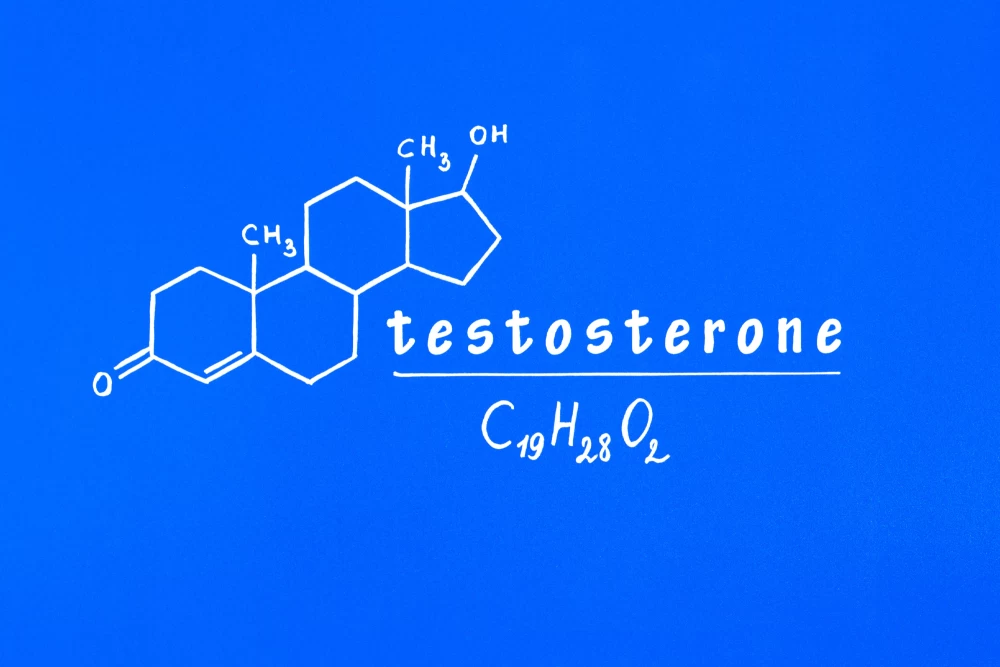
- 26th April 2023
Table of Contents
What is Intermittent Fasting?
Alternating periods of fasting and eating is the basis of the eating pattern known as intermittent fasting (IF). It does not tell you what to eat but rather when to eat it. Recent research suggests that IF may also affect hormone levels in the body, in addition to the weight loss benefits previously attributed to it. Insulin, a hormone that controls blood sugar, is affected by IF. Reduced insulin production during fasting frees up glucose from storage for use as fuel. Increased insulin sensitivity and decreased vulnerability to type 2 diabetes may result from this procedure. Human growth hormone is another hormone that IF can alter (HGH). Growth hormone (HGH) helps build muscle, repair damaged tissue in bones, and burn fat. Researchers have found that IF can cause a fivefold increase in HGH levels. Though intermittent fasting has been shown to improve hormone levels, it is not a panacea for hormonal imbalances or other health problems. Before beginning any new diet or exercise plan, it is wise to speak with a medical professional.
Hormones: Overview of Hormonal Balance
In order to lose weight, many people choose to practise intermittent fasting (IF), in which they eat only during certain time periods and abstain from food during the rest of the day. Insulin, ghrelin, and leptin levels can be affected by IF, making hormonal regulation more or less effective. Blood sugar levels are tightly controlled by insulin. As insulin levels drop during fasting, the body is compelled to use its fat stores as fuel instead of glucose. Ghrelin is a hormone secreted by the stomach that sends signals to the brain to indicate when a person is hungry. Increased ghrelin levels during the fasting period may be a side effect of IF for some people. However, as your body becomes accustomed to IF, this effect typically fades away. Leptin is a hormone that controls signals of hunger and fullness. According to research, some people's leptin levels drop during prolonged fasting, making them hungrier than usual when they eat again. In conclusion, intermittent fasting can improve hormonal balance by decreasing insulin resistance and supporting weight loss efforts, but it's important to pay attention to your body and make adjustments as needed.
IF and Cortisol
There has been a rise in the use of intermittent fasting (IF) as a means of shedding excess pounds. Nonetheless, studies suggest that it may also influence hormonal equilibrium. A major function of cortisol, also called the "stress hormone," is to control metabolism and the body's reaction to stress. Some people may experience adverse health effects from increased cortisol levels, as shown in studies. Anxiety, depression, and weight gain are just some of the symptoms that have been linked to elevated cortisol levels. High cortisol levels, whether from chronic stress or something like IF, can have a deleterious effect on insulin sensitivity and lead to elevated blood sugar levels. Those with diabetes or at high risk for developing the disease may find this especially alarming. Experts recommend keeping an eye on cortisol levels during fasting periods and incorporating relaxation techniques like yoga or meditation into daily routines to help mitigate any potential negative effects on hormones, but more research is needed to fully understand the impact of IF on hormonal balance and overall health.
IF and Testosterone
Alternating periods of fasting and eating is the basis of the popular eating pattern known as intermittent fasting (IF). Hormonal levels, including testosterone, have been shown to be affected by IF. The testicles are the primary organ responsible for producing the hormone testosterone, which is essential for normal sexual maturation, growth of skeletal muscle, and maintenance of bone density in men. IF has been linked to an increase in testosterone levels in men. Testosterone levels were found to rise significantly in men who followed IF for eight weeks compared to those who ate normally. To fully understand the effects of IF on testosterone levels, more research is needed, but it is important to note that these findings are preliminary. Hormonal equilibrium is nuanced and affected by more than just what you eat, so keep that in mind. Although intermittent fasting (IF) has been suggested to improve hormonal balance and general health in a few studies, anyone considering making significant dietary or lifestyle changes should first speak with a doctor.

IF and Insulin Sensitivity
Maintaining insulin sensitivity is essential for optimal health and the prevention of metabolic syndrome, type 2 diabetes, obesity, and cardiovascular disease. Researchers have discovered that intermittent fasting (IF) increases insulin sensitivity and decreases insulin resistance. This can lessen the likelihood of developing type 2 diabetes because it means the body needs less insulin to control blood sugar levels. IF has been shown to affect other hormones involved in metabolic regulation, in addition to insulin sensitivity. Fasting, for instance, can boost fat loss and muscle gain by increasing levels of growth hormone. Cortisol, the stress hormone, can be lowered and inflammation squelched by IF. While intermittent fasting (IF) has been shown to improve hormonal balance and insulin sensitivity, it is not a panacea for all people. Before beginning an IF programme, people with preexisting health conditions or who are taking specific medications should speak with their doctor. However, if you're looking to improve your hormonal balance and reach your health goals, intermittent fasting may be a useful tool to incorporate into your lifestyle.
IF and Growth Hormone
In recent years, intermittent fasting (IF) has risen in popularity as a means to better health and weight loss. Growth hormone is one hormone that could be influenced by IF (GH). Growth hormone (GH) plays a crucial role in promoting growth, cell division, and tissue repair. It aids in maintaining a healthy balance of muscle, bone, and fat in the body. According to studies, IF can boost GH levels. An increase in growth hormone (GH) has been linked to better muscle function, faster fat burning, and quicker recovery from exercise. It's important to note, though, that the impact of IF on GH levels may be too small to produce discernible shifts in muscle mass or body composition. More research is needed to fully understand the connection between IF and GH levels, but some studies have shown a positive relationship between the two. Hormonal equilibrium can also be affected by many other factors besides just intermittent fasting. Changing your diet or your way of life can have a significant impact on your health, but before making any major adjustments, it's best to talk to a doctor.
Other Benefits of IF
There are many advantages to intermittent fasting (IF) beyond just weight loss. Potentially improving hormone balance is one of the biggest advantages. Scientific investigations have shown that IF can aid in insulin regulation, thereby decreasing the likelihood of insulin resistance and type 2 diabetes. Human growth hormone (HGH) is a hormone that promotes fat loss and muscle gain, and it has been linked to IF. The stress hormone cortisol may be affected by IF, which is yet another positive effect on hormone balance. Some research suggests that IF can help reduce cortisol levels by reducing stress on the body and promoting relaxation during fasting periods; however, other research has found the opposite to be true. Reducing cortisol levels has been linked to enhanced immune function and decreased inflammation. Last but not least, IF has been linked to better reproductive health through the regulation of hormones like oestrogen and testosterone. But there needs to be more study done in this area before any firm conclusions can be made. These additional hormonal benefits make intermittent fasting worth considering for anyone looking to improve their overall health and well-being, even if weight loss isn't the primary motivation for starting the regimen.















